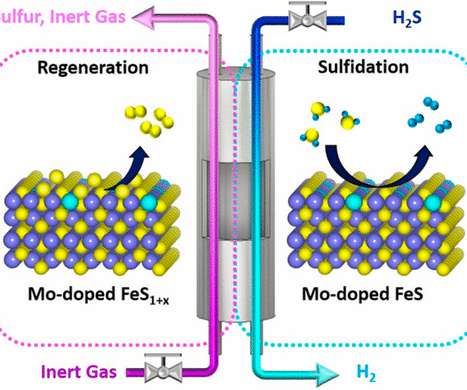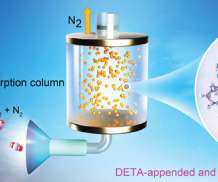Researchers use chemical looping process to produce hydrogen from hydrogen sulfide gas
Green Car Congress
SEPTEMBER 13, 2021
The process uses relatively little energy and a relatively cheap material—iron sulfide with a trace amount of molybdenum as an additive. The team first used chemical looping on coal and shale gas to convert fossil fuels into electricity without emitting carbon dioxide into the atmosphere. —Kalyani Jangam, lead author.





























Let's personalize your content